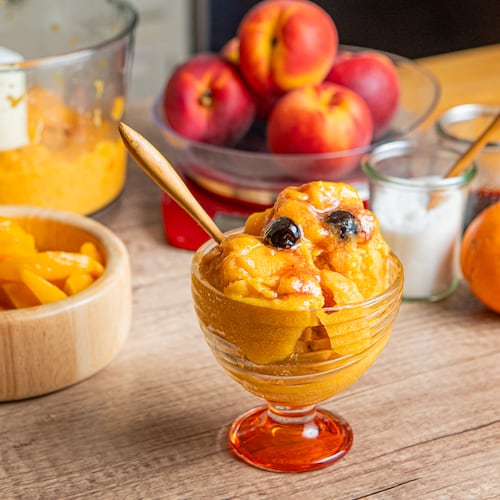“Welcome to the future,” Greg Shuff, owner of DryHop Brewers in Chicago’s Lakeview neighborhood, said as he approached his brewery’s new toy.
He grabbed a disarmingly large 32-ounce aluminum can still missing a lid — the can was about the size of a baby’s leg — and raised it to one of his six taps. He filled the can with Comrade Mendeleev, a moderate-alcohol porter, until the beer’s thin foamy head bubbled just over the lip of the can.
Oskar Blues, the Longmont, Colo., brewery that helped spark the canned craft beer movement more than a decade ago, introduced the 32-ounce poured-to-order can, called a crowler, in January. It also began offering the technology — essentially a modified home-canning machine — to other breweries. DryHop is the first in Chicago to sell the cans.
“What’s popular about craft beer is the hand-crafted artisan values — this is an extension of that,” Shuff said. “It’s really cool and romantic.”
The cans will replace DryHop’s slightly larger glass howlers that Shuff said he rarely sells; the classic 64-ounce growler (which will remain at DryHop) outsells his 34-ounce howler 4-to-1, he said.
The 32-ounce can offers plenty of advantages over the howler: The aluminum is more effective at blocking light (public enemy No. 1 for beer) and, provided it is filled correctly, oxygenation; they don’t need to be cleaned out like growlers and howlers; and for the consumer, the beer will keep far longer and is easier to transport. (For instance, getting beer home from distant locations will be much less perilous.)
As for breweries, the 32-ounce can makes sense for brewpubs that don’t package beer (like DryHop) or nano-brewers looking for a simple way to get beer to consumers.
The obvious downside is replacing reusable glass with a one-time-use aluminum can. Shuff said half of his growler fills involve the customer buying new glass, which makes him wonder how much people actually reuse growlers (or howlers).
“In a vacuum where everyone acts like I want them to, they bring the glass and refill it 1,000 times,” he said. “The recyclability of a can is enough for me to feel good about this from an ecological standpoint.”
DryHop plans to charge between $6 and $12 per can; most fills will cost between $6 and $8.
The question is whether Shuff was right when he called crowlers “the future.” Craft brewers have embraced many shapes and sizes, including 12-ounce cans and bottles, 16-ounce cans, 22-ounce bottles, 750-militilter bottles and 64-ounce growlers. The howler never much took off, which indeed might mean that the market is ready for a 32-ounce can.
Jeremy Rudolf, production manager at Oskar Blues, said sales of the crowler starter package — the machine (which costs $3,000), cans and lids — has exceeded expectations. Breweries that have bought the crowler set-up include Sierra Nevada (California), Ska (Colorado), Wachusett (Massachusetts) and Cigar City (Florida).
“The list in growing rapidly,” he said. “I got 15 emails this morning. Originally the idea was just for tap rooms, but it’s evolving into something that a lot of people were looking for. They just didn’t know it.”
About the Author
The Latest
Featured

